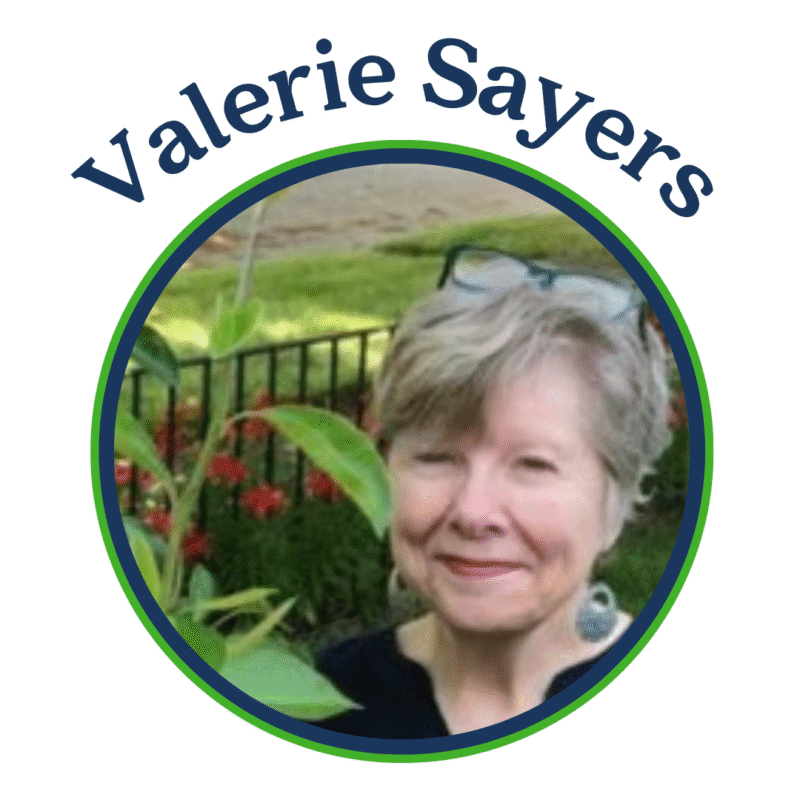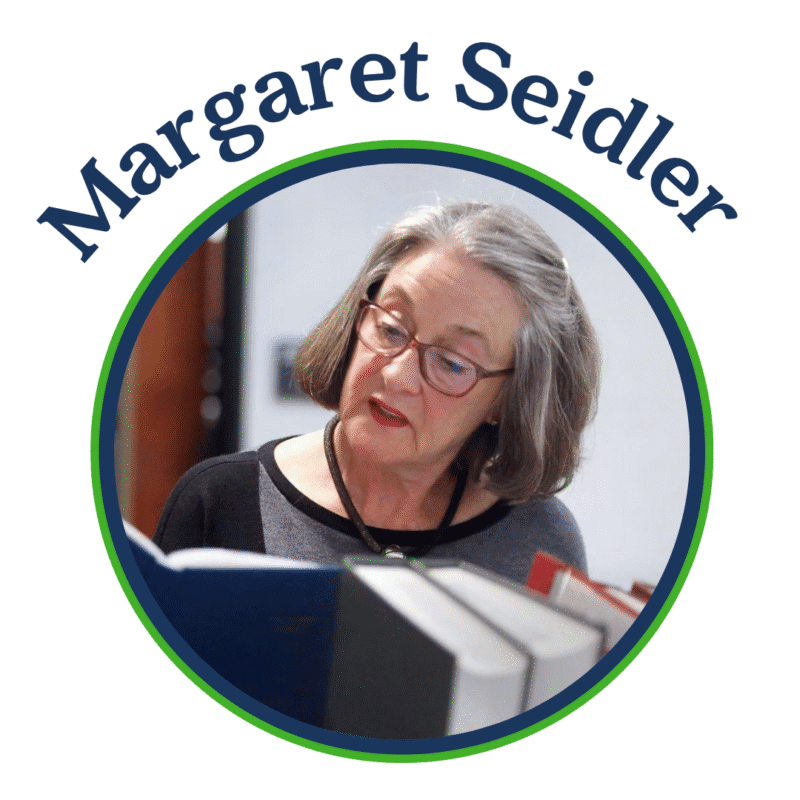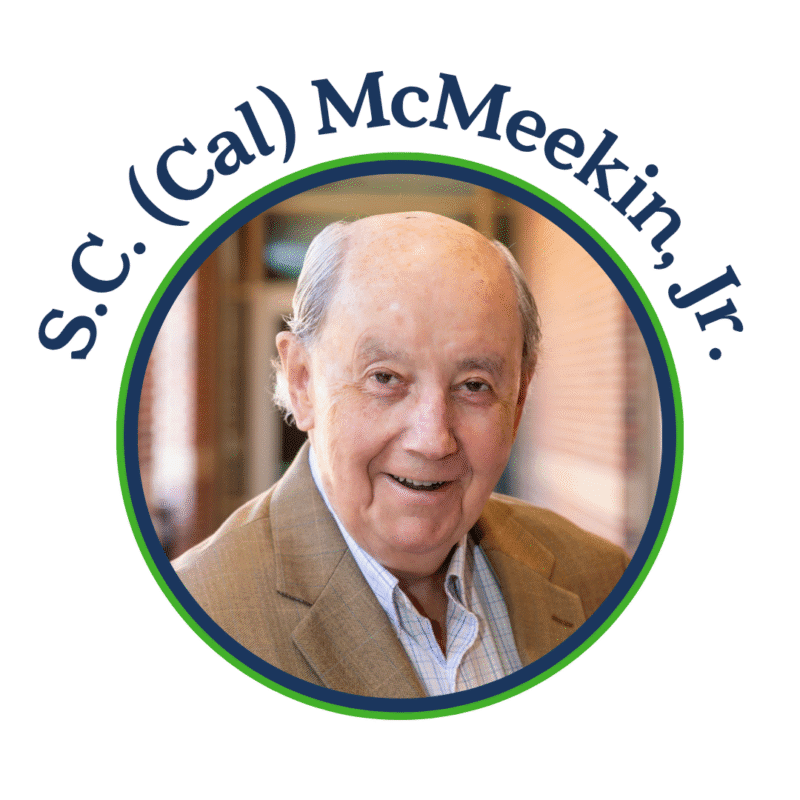South Carolina Humanities is pleased to announce the 2025 recipients of the Governor’s Awards in the Humanities and the Akers Prize. This year, a new state-wide award known as the McMeekin Award will be introduced, named after its inaugural recipient, S.C. (Cal) McMeekin, Jr. McMeekin is a long-time board member and champion for the humanities in South Carolina.
Established in 1991, the Governor’s Awards recognize outstanding achievement in humanities research, teaching, and scholarship; institutional and individual participation in helping communities in South Carolina better understand our cultural heritage or ideas and issues related to the humanities; excellence in defining South Carolina’s cultural life to the nation or world; and exemplary support for public humanities programs.

The 2025 recipients of the Governor’s Awards in the Humanities are: Dr. Bernard Powers, professor emeritus of history at the College of Charleston and director of its Center for the Study of Slavery in Charleston; Dr. Philip Racine, Professor of History Emeritus at Wofford College; Valerie Sayers, fiction writer, essayist, and critic from Beaufort; and Margaret Seidler, retired Organization and Leadership Development consultant, national conference speaker, and author.
 Bernard E. Powers Jr. earned the Ph. D in American history at Northwestern University. He is professor emeritus of history at the College of Charleston and director of its Center for the Study of Slavery in Charleston. His Black Charlestonians: A Social History 1822-1885, was designated an “Outstanding Academic Book” by Choice Magazine. Powers is co-author of We Are Charleston: Tragedy and Triumph at Mother Emanuel, about the city’s 2015 racially motivated murders. He also edited 101 African Americans Who Shaped South Carolina. Powers appeared in documentary films, including, The African Americans: Many Rivers to Cross and Emanuel: The Untold Story of the Victims and Survivors of the Charleston Church Shooting. Powers served on the boards of several historical societies and organizations, including Charleston’s recently opened International African American Museum. In 2019 the Association for the Study of African American Life and History recognized his “research, writing, and activism in the field of African American life and history” with the Carter Godwin Woodson Scholars Medallion.
Bernard E. Powers Jr. earned the Ph. D in American history at Northwestern University. He is professor emeritus of history at the College of Charleston and director of its Center for the Study of Slavery in Charleston. His Black Charlestonians: A Social History 1822-1885, was designated an “Outstanding Academic Book” by Choice Magazine. Powers is co-author of We Are Charleston: Tragedy and Triumph at Mother Emanuel, about the city’s 2015 racially motivated murders. He also edited 101 African Americans Who Shaped South Carolina. Powers appeared in documentary films, including, The African Americans: Many Rivers to Cross and Emanuel: The Untold Story of the Victims and Survivors of the Charleston Church Shooting. Powers served on the boards of several historical societies and organizations, including Charleston’s recently opened International African American Museum. In 2019 the Association for the Study of African American Life and History recognized his “research, writing, and activism in the field of African American life and history” with the Carter Godwin Woodson Scholars Medallion.
 Dr. Philip N. Racine is the William R. Kenan, Jr. Professor of History Emeritus at Wofford College. A native of Maine, he is a graduate of Bowdoin College and Emory University. In his 40-year career at Wofford, he taught countless students and served as a long-time chair of its Department of History. He envisioned and later coordinated the Lewis P. Jones Visiting Professorship which brought influential historians to campus to teach and deliver public lectures. He published eight books on the Civil War, the history of South Carolina, and Spartanburg. Reviewers appreciated how Dr. Racine brought more understanding to how common folk in the backcountry shaped the state’s history. His partnership with Hub City Writers Project built understanding of local history, particularly with his book Seeing Spartanburg as well as Betsy Teter’s edited volume Textile Town. In retirement, he wrote Living a Big War in a Small Place: Spartanburg, South Carolina, during the Confederacy (USC Press, 2013) and, with his wife, Frances Melton Racine, co-authored Backcountry Slave Trader: William James Smith’s Enterprise, 1844-1854 (Lexington Books, 2020). The Racines have two children, Russell and Ali.
Dr. Philip N. Racine is the William R. Kenan, Jr. Professor of History Emeritus at Wofford College. A native of Maine, he is a graduate of Bowdoin College and Emory University. In his 40-year career at Wofford, he taught countless students and served as a long-time chair of its Department of History. He envisioned and later coordinated the Lewis P. Jones Visiting Professorship which brought influential historians to campus to teach and deliver public lectures. He published eight books on the Civil War, the history of South Carolina, and Spartanburg. Reviewers appreciated how Dr. Racine brought more understanding to how common folk in the backcountry shaped the state’s history. His partnership with Hub City Writers Project built understanding of local history, particularly with his book Seeing Spartanburg as well as Betsy Teter’s edited volume Textile Town. In retirement, he wrote Living a Big War in a Small Place: Spartanburg, South Carolina, during the Confederacy (USC Press, 2013) and, with his wife, Frances Melton Racine, co-authored Backcountry Slave Trader: William James Smith’s Enterprise, 1844-1854 (Lexington Books, 2020). The Racines have two children, Russell and Ali.
 Valerie Sayers is a fiction writer, essayist, and critic born and raised in Beaufort, which features prominently in her work. The author of six novels, including The Powers and Brain Fever, and a collection of stories, The Age of Infidelity, her literary honors include a fellowship from the National Endowment for the Arts and two Pushcart Prizes, as well as three “distinguished” citations from Pushcart. Her prose has appeared widely in venues ranging from the New York Times and Washington Post to Agni, Ploughshares, and Zoetrope, and her books have been on many “Best of the Year” and “Editors’ Choice” lists, including those at the New York Times, Washington Post, and Chicago Tribune. She was the William R. Kenan, Jr., Professor of English at Notre Dame, where she served terms as chair of the English Department and Director of the Creative Writing Program, founded the Notre Dame Review, and taught in the Moreau College Initiative, a college prison program in Northern Indiana. After retirement, she returned to Beaufort, where she continues to write and serves on the board of the Pat Conroy Literary Center. She is especially honored to be a member of the South Carolina Academy of Authors.
Valerie Sayers is a fiction writer, essayist, and critic born and raised in Beaufort, which features prominently in her work. The author of six novels, including The Powers and Brain Fever, and a collection of stories, The Age of Infidelity, her literary honors include a fellowship from the National Endowment for the Arts and two Pushcart Prizes, as well as three “distinguished” citations from Pushcart. Her prose has appeared widely in venues ranging from the New York Times and Washington Post to Agni, Ploughshares, and Zoetrope, and her books have been on many “Best of the Year” and “Editors’ Choice” lists, including those at the New York Times, Washington Post, and Chicago Tribune. She was the William R. Kenan, Jr., Professor of English at Notre Dame, where she served terms as chair of the English Department and Director of the Creative Writing Program, founded the Notre Dame Review, and taught in the Moreau College Initiative, a college prison program in Northern Indiana. After retirement, she returned to Beaufort, where she continues to write and serves on the board of the Pat Conroy Literary Center. She is especially honored to be a member of the South Carolina Academy of Authors.
 Margaret Seidler, native Charlestonian and direct descendant of local slave traders, is a retired Organization & Leadership Development consultant, national conference speaker, and author of “Payne-ful” Business: Charleston’s Journey to Truth, a recipient of the 2025 Phillis Wheatley National Book Award. Her career focused on creating higher performance in leaders and in addressing complex local government and community problems. In the aftermath of the 2015 Mother Emanuel AME Church massacre, she and retired City Police Chief Greg Mullen led the Charleston Illumination Project, a year-long effort designed to give all parts of the community a voice in strengthening citizen/police relationships, grounded in trust and legitimacy.
Margaret Seidler, native Charlestonian and direct descendant of local slave traders, is a retired Organization & Leadership Development consultant, national conference speaker, and author of “Payne-ful” Business: Charleston’s Journey to Truth, a recipient of the 2025 Phillis Wheatley National Book Award. Her career focused on creating higher performance in leaders and in addressing complex local government and community problems. In the aftermath of the 2015 Mother Emanuel AME Church massacre, she and retired City Police Chief Greg Mullen led the Charleston Illumination Project, a year-long effort designed to give all parts of the community a voice in strengthening citizen/police relationships, grounded in trust and legitimacy.

The Akers Prize, formerly the Fresh Voices in the Humanities Award, recognizes innovative individuals who use culture and history to bring people together, but whose efforts may have gone relatively unnoticed beyond their own community. The 2025 recipient of the Akers Prize is Dr. Erica Johnson, associate professor of history, co-director of African and African American Studies, and the faculty coordinator for Universities Studying Slavery at Francis Marion University.
 Erica Johnson is originally from Oklahoma but has worked at Francis Marion University since 2017. She earned her doctorate at Florida State University and began her university teaching career in rural Georgia. She is an associate professor of history, co-director of African and African American Studies, and the faculty coordinator for Universities Studying Slavery at FMU. She researches various aspects of the Atlantic World and the African Diaspora, including cemeteries, education, memory, and religion. She is author of a monograph, Philanthropy and Race in the Haitian Revolution, part of the Cambridge Imperial and Post-Colonial Studies Series (Palgrave Macmillan, 2018). She has also published articles in Southern Quarterly, The History Teacher, and Studies in Eighteenth-Century Culture. She is managing editor for Age of Revolutions, on open-access peer-reviewed journal. She actively engages her students in collaborative research as well. They have conducted oral histories for the Pee Dee Oral History Project and worked together on Black historic cemetery preservation in Florence County. She has coauthored articles on the civil rights movement in South Carolina with students for Carolina Currents. She also works with descendants and the community on research and service projects. In Spring 2023, she helped organize and host the Universities Studying Slavery in South Carolina Symposium. She serves on the Carolina Lowcountry and Atlantic World Community Advisory Board and is a member of Women in Philanthropy and the League of Women Voters.
Erica Johnson is originally from Oklahoma but has worked at Francis Marion University since 2017. She earned her doctorate at Florida State University and began her university teaching career in rural Georgia. She is an associate professor of history, co-director of African and African American Studies, and the faculty coordinator for Universities Studying Slavery at FMU. She researches various aspects of the Atlantic World and the African Diaspora, including cemeteries, education, memory, and religion. She is author of a monograph, Philanthropy and Race in the Haitian Revolution, part of the Cambridge Imperial and Post-Colonial Studies Series (Palgrave Macmillan, 2018). She has also published articles in Southern Quarterly, The History Teacher, and Studies in Eighteenth-Century Culture. She is managing editor for Age of Revolutions, on open-access peer-reviewed journal. She actively engages her students in collaborative research as well. They have conducted oral histories for the Pee Dee Oral History Project and worked together on Black historic cemetery preservation in Florence County. She has coauthored articles on the civil rights movement in South Carolina with students for Carolina Currents. She also works with descendants and the community on research and service projects. In Spring 2023, she helped organize and host the Universities Studying Slavery in South Carolina Symposium. She serves on the Carolina Lowcountry and Atlantic World Community Advisory Board and is a member of Women in Philanthropy and the League of Women Voters.

The new McMeekin Award recognizes individuals who embody service and advocacy of the humanities as well as the values of the humanities in their professional life, outside of the realms of academia and professional humanistic endeavors. The inaugural recipient is S.C. (Cal) McMeekin, Jr.
 S.C. (Cal) McMeekin, Jr. grew up in Columbia and graduated from Dreher High School. He earned a B.S. degree in Industrial Management at Clemson University. He worked for 29 years at South Carolina Electric and Gas Company in a variety of positions, including Manager of the Columbia Gas Department, Manager of Fuel Supply, Manager of Customer Service, Vice President of Customer Operations for the Northern Division, and Vice President of Customer Relations. He retired from SCE&G in 2000, and later joined Dial, Dunlap & Edwards, LLC, a commercial real estate firm in Columbia. He is past Chair of the Trident United Way and the Columbia Salvation Army Board. He is a past board member of the Rotary Club, the Boy Scout Indian Waters Council, the March of Dimes, the Palmetto Conservation Foundation, and the Columbia and Charleston Chambers of Commerce. He is an elder at First Presbyterian Church in Columbia. In addition, he has served as a member of the Board of Visitors and as Director of IPTAY at Clemson University. He is married with three children and seven grandchildren. Cal McMeekin has served as an elected and gubernatorial appointed board member for South Carolina Humanities for 41 years.
S.C. (Cal) McMeekin, Jr. grew up in Columbia and graduated from Dreher High School. He earned a B.S. degree in Industrial Management at Clemson University. He worked for 29 years at South Carolina Electric and Gas Company in a variety of positions, including Manager of the Columbia Gas Department, Manager of Fuel Supply, Manager of Customer Service, Vice President of Customer Operations for the Northern Division, and Vice President of Customer Relations. He retired from SCE&G in 2000, and later joined Dial, Dunlap & Edwards, LLC, a commercial real estate firm in Columbia. He is past Chair of the Trident United Way and the Columbia Salvation Army Board. He is a past board member of the Rotary Club, the Boy Scout Indian Waters Council, the March of Dimes, the Palmetto Conservation Foundation, and the Columbia and Charleston Chambers of Commerce. He is an elder at First Presbyterian Church in Columbia. In addition, he has served as a member of the Board of Visitors and as Director of IPTAY at Clemson University. He is married with three children and seven grandchildren. Cal McMeekin has served as an elected and gubernatorial appointed board member for South Carolina Humanities for 41 years.
Learn more about this year’s winners and sponsorships on the Humanities Awards page of SC Humanities’ website.
The 34th annual South Carolina Awards in the Humanities Luncheon and Ceremony will be held at the Pastides Alumni Center in Columbia, South Carolina on Thursday, October 16, 2025 at 11:30 a.m. Table sponsorships are available now and individual tickets will go on sale after Monday, September 1, 2025.*Table sponsorship opportunities close on Friday, September 19, 2025. To learn more about this event, call 803-771-2477.
###
About South Carolina Humanities
The mission of SC Humanities is to enrich the cultural and intellectual lives of all South Carolinians. Established in 1973, this 501(c)3 organization is governed by a volunteer Board of Directors comprised of community leaders from throughout the state. It presents and supports literary initiatives, lectures, exhibits, festivals, publications, oral history projects, videos, and other humanities-based experiences that directly or indirectly reach more than 250,000 citizens annually. South Carolina Humanities receives funding from the National Endowment for the Humanities as well as corporate, foundation and individual donors. The National Endowment for the Humanities: Democracy demands wisdom.
